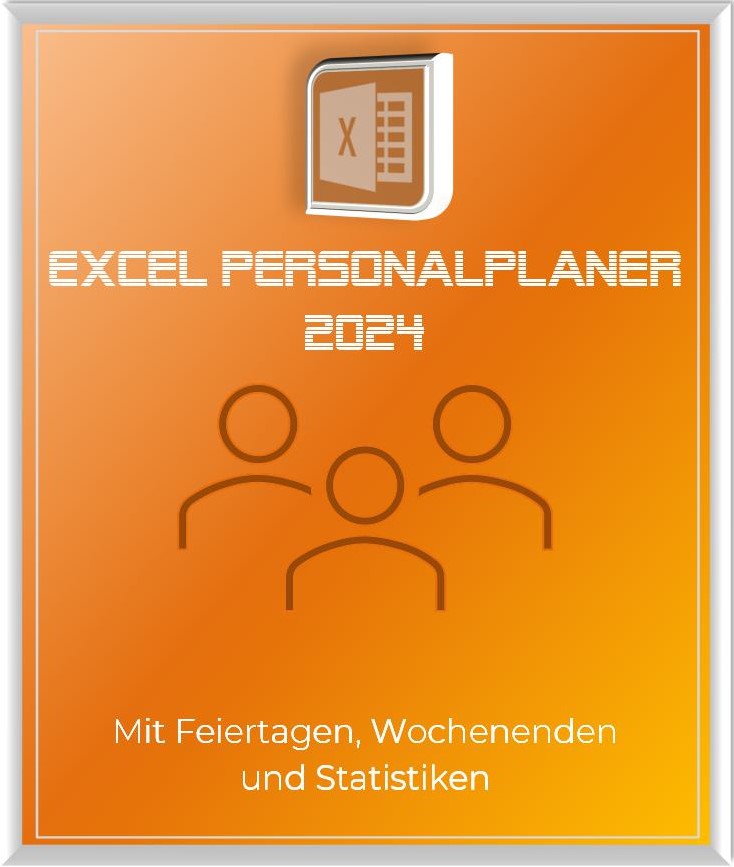Fit for the digital world: Tips for digital competence
In today’s world, digital literacy is one of the most important skills one can possess. Technology is advancing at a rapid pace, affecting almost every aspect of our lives. To thrive in the digital world, you need to learn how to use digital technology, navigate the internet safely, communicate effectively, and build a career online. In this article we will show you some practical tips for becoming more digitally literate.

Fit for the digital world: Tips for digital competence
In today’s world, digital literacy is one of the most important skills one can possess. Technology is advancing at a rapid pace, affecting almost every aspect of our lives. To thrive in the digital world, you need to learn how to use digital technology, navigate the internet safely, communicate effectively, and build a career online. In this article we will show you some practical tips for becoming more digitally literate.

Why digital literacy matters
Why digital literacy matters
In a world that is becoming increasingly digital, digital literacy has become the new reading skill. In almost every aspect of life, from work to education to communication, it has become imperative to use digital technologies effectively and responsibly.
Digital competence: An indispensable skill in the 21st century
Our working world is becoming more and more digital. From online meetings and presentations to using specialized software and communicating via email, digital literacy is no longer a “nice extra” but a basic requirement in most jobs. Employers actively seek candidates who are not only tech-savvy, but also able to use digital tools critically and creatively to solve problems and drive innovation.
Digital competence is not just a necessity, but a decisive factor for success in our digitized world. It prepares us to be responsible digital citizens, able to seize the opportunities of digitization while tackling its challenges.
In a world that is becoming increasingly digital, digital literacy has become the new reading skill. In almost every aspect of life, from work to education to communication, it has become imperative to use digital technologies effectively and responsibly.
Digital competence: An indispensable skill in the 21st century
Our working world is becoming more and more digital. From online meetings and presentations to using specialized software and communicating via email, digital literacy is no longer a “nice extra” but a basic requirement in most jobs. Employers actively seek candidates who are not only tech-savvy, but also able to use digital tools critically and creatively to solve problems and drive innovation.
Digital competence is not just a necessity, but a decisive factor for success in our digitized world. It prepares us to be responsible digital citizens, able to seize the opportunities of digitization while tackling its challenges.
Learn the basics of digital technology
Learn the basics of digital technology
In an increasingly digital world where smartphones, tablets and computers are part of everyday life, understanding the basics of digital technology has become essential. Whether you’re just starting out in the digital universe or looking to brush up on your skills, here are some valuable tips and resources:
How to master the fundamentals of digital technology
First of all: Don’t worry! Digital technology may seem complex, but many aspects are intuitive and become clearer the more you delve into them. Start with the basics. Understand the differences between hardware and software. Learn how to use an operating system, manage files, and install and uninstall programs.
From there, you can start using applications and Familiarize yourself with software programs. Word, Excel and PowerPoint are often the basis for office work, but there are also many other useful tools. Learn how to compose and send an email, surf the web and use social media. Also, take the time to learn the basics of internet security. This includes protecting your personal information, recognizing and avoiding phishing attempts and surfing the Internet safely. A simple rule is: If something seems too good to be true, it probably is.
There are many resources to help you on your digital journey. Sites like Codecademy and Khan Academy offer free courses in digital fundamentals and beyond. Libraries and community centers often offer computer courses for beginners. And don’t forget that the younger generation is often very tech-savvy. Children and grandchildren can often help solve basic technology problems. Digital technology is not a passing fad. It is an integral part of modern life and is likely to become increasingly important. By learning the basics of digital technology, you can ensure you are not left behind and take full advantage of the digital world.
In an increasingly digital world where smartphones, tablets and computers are part of everyday life, understanding the basics of digital technology has become essential. Whether you’re just starting out in the digital universe or looking to brush up on your skills, here are some valuable tips and resources:
How to master the fundamentals of digital technology
First of all: Don’t worry! Digital technology may seem complex, but many aspects are intuitive and become clearer the more you delve into them. Start with the basics. Understand the differences between hardware and software. Learn how to use an operating system, manage files, and install and uninstall programs.
From there, you can start using applications and Familiarize yourself with software programs. Word, Excel and PowerPoint are often the basis for office work, but there are also many other useful tools. Learn how to compose and send an email, surf the web and use social media. Also, take the time to learn the basics of internet security. This includes protecting your personal information, recognizing and avoiding phishing attempts and surfing the Internet safely. A simple rule is: If something seems too good to be true, it probably is.
There are many resources to help you on your digital journey. Sites like Codecademy and Khan Academy offer free courses in digital fundamentals and beyond. Libraries and community centers often offer computer courses for beginners. And don’t forget that the younger generation is often very tech-savvy. Children and grandchildren can often help solve basic technology problems. Digital technology is not a passing fad. It is an integral part of modern life and is likely to become increasingly important. By learning the basics of digital technology, you can ensure you are not left behind and take full advantage of the digital world.
How to improve your digital security
How to improve your digital security
In an increasingly digital world, maintaining online safety is of paramount importance. Phishing attacks, data leaks, and other forms of cybercrime can cause significant damage. But with a few proven strategies, you can significantly improve your digital security.
Here are our top tips:
Practical tips for everyday life
Use strong, unique passwords: It may be tempting to use “123456” or “password” for your online accounts, but these are easy to guess and offer little protection. Instead, use strong, unique passwords that contain letters, numbers, and special characters. To keep track of all those passwords, you can use a password manager.
Update your software regularly: Software updates often include security patches that fix known security vulnerabilities. Therefore, always keep your operating system, apps and antivirus software up to date.
Be careful with phishing attempts: Cyber criminals often try to trick you into revealing sensitive information by posing as trusted institutions. Be wary of any email or message asking for personal information, and always double-check the sender’s address.
Use two-factor authentication: Two-factor authentication provides an extra layer of security by requiring you to enter additional information in addition to your password to access your account. For example, this can be a code sent to your phone.
Ensure secure connections: When you surf the Internet, make sure that the website you are visiting uses a secure connection. You can see this by looking for “https://” in your browser’s address bar.
Be careful with public WiFi networks: Public networks are often unsecured and can be used by cybercriminals to intercept your data. Use them with care and avoid entering sensitive information like credit card details when connected to a public network.
Even if this all seems like a lot to look out for, I can assure you that the longer you deal with it, the more routine it becomes. This way you can keep your digital security up to date and protect yourself from many online threats. Remember that security is just as important in the digital world as it is in the physical world. stay safe!
In an increasingly digital world, maintaining online safety is of paramount importance. Phishing attacks, data leaks, and other forms of cybercrime can cause significant damage. But with a few proven strategies, you can significantly improve your digital security.
Here are our top tips:
Practical tips for everyday life
Use strong, unique passwords: It may be tempting to use “123456” or “password” for your online accounts, but these are easy to guess and offer little protection. Instead, use strong, unique passwords that contain letters, numbers, and special characters. To keep track of all those passwords, you can use a password manager.
Update your software regularly: Software updates often include security patches that fix known security vulnerabilities. Therefore, always keep your operating system, apps and antivirus software up to date.
Be careful with phishing attempts: Cyber criminals often try to trick you into revealing sensitive information by posing as trusted institutions. Be wary of any email or message asking for personal information, and always double-check the sender’s address.
Use two-factor authentication: Two-factor authentication provides an extra layer of security by requiring you to enter additional information in addition to your password to access your account. For example, this can be a code sent to your phone.
Ensure secure connections: When you surf the Internet, make sure that the website you are visiting uses a secure connection. You can see this by looking for “https://” in your browser’s address bar.
Be careful with public WiFi networks: Public networks are often unsecured and can be used by cybercriminals to intercept your data. Use them with care and avoid entering sensitive information like credit card details when connected to a public network.
Even if this all seems like a lot to look out for, I can assure you that the longer you deal with it, the more routine it becomes. This way you can keep your digital security up to date and protect yourself from many online threats. Remember that security is just as important in the digital world as it is in the physical world. stay safe!
Discover new digital tools and apps
Discover new digital tools and apps
In today’s digital world, using tools and apps has become almost a necessity. From increasing productivity to entertainment, new digital tools and apps are constantly emerging to support us in all walks of life.
Have you ever lost a thought because you didn’t have a pen to write it down? Thanks to the explosive growth of technology, there are now digital solutions to this problem. Tools like Evernote or Microsoft OneNote make jotting down thoughts easier than ever. You can take notes, capture ideas, and even save photos and links, all in one place.
A journey through the digital landscape
For those who are struggling to focus on their work, there are a plethora of productivity apps that can help. Apps like Focus Keepers use the Pomodoro Technique to give you to help work more efficiently by combining blocks of work with short breaks. The health and fitness industry has also seen a huge digital boom. Apps like MyFitnessPal help users track their diet, while Fitbod creates personalized workouts based on your fitness level and available equipment.
When it comes to entertainment, the possibilities are almost unlimited. Apps like Spotify and Netflix have revolutionized the way we listen to music and watch movies and series, while mobile games like Candy Crush and Clash of Clans have delighted millions of users worldwide. These new digital tools and apps are helping to make our lives easier, more efficient and more fun. There has never been a better time to explore the possibilities of the digital landscape and how it can enrich your everyday life.
In today’s digital world, using tools and apps has become almost a necessity. From increasing productivity to entertainment, new digital tools and apps are constantly emerging to support us in all walks of life.
Have you ever lost a thought because you didn’t have a pen to write it down? Thanks to the explosive growth of technology, there are now digital solutions to this problem. Tools like Evernote or Microsoft OneNote make jotting down thoughts easier than ever. You can take notes, capture ideas, and even save photos and links, all in one place.
A journey through the digital landscape
For those who are struggling to focus on their work, there are a plethora of productivity apps that can help. Apps like Focus Keepers use the Pomodoro Technique to give you to help work more efficiently by combining blocks of work with short breaks. The health and fitness industry has also seen a huge digital boom. Apps like MyFitnessPal help users track their diet, while Fitbod creates personalized workouts based on your fitness level and available equipment.
When it comes to entertainment, the possibilities are almost unlimited. Apps like Spotify and Netflix have revolutionized the way we listen to music and watch movies and series, while mobile games like Candy Crush and Clash of Clans have delighted millions of users worldwide. These new digital tools and apps are helping to make our lives easier, more efficient and more fun. There has never been a better time to explore the possibilities of the digital landscape and how it can enrich your everyday life.
Learn how to communicate online
Learn how to communicate online
In an increasingly digitized world, where the dividing line between physical and virtual reality is becoming increasingly blurred, the ability to communicate online is more important than ever. The Internet has revolutionized the way we communicate, giving us countless ways to express ourselves, share information and nurture relationships.
But how can we use these valuable digital tools most effectively?
In a world that is constantly evolving, one thing remains constant: the need to communicate effectively. By improving our online communication skills, we can ensure we are ready to face the digital future.
In an increasingly digitized world, where the dividing line between physical and virtual reality is becoming increasingly blurred, the ability to communicate online is more important than ever. The Internet has revolutionized the way we communicate, giving us countless ways to express ourselves, share information and nurture relationships.
But how can we use these valuable digital tools most effectively?
In a world that is constantly evolving, one thing remains constant: the need to communicate effectively. By improving our online communication skills, we can ensure we are ready to face the digital future.
Use the internet to advance your career
Use the internet to advance your career
Digitization has revolutionized the world of work. The Internet has opened up countless opportunities for us to advance our careers. With the following five key strategies, you can use the Internet to achieve your career goals:
The 5 key strategies
The Internet is neither your friend nor your enemy. It’s just a powerful tool when it comes to advancing your career, plain and simple. Use it to your advantage and discover how far you can go with it.
Digitization has revolutionized the world of work. The Internet has opened up countless opportunities for us to advance our careers. With the following five key strategies, you can use the Internet to achieve your career goals:
The 5 key strategies
The Internet is neither your friend nor your enemy. It’s just a powerful tool when it comes to advancing your career, plain and simple. Use it to your advantage and discover how far you can go with it.
Stay up to date: The future of the digital world
Stay up to date: The future of the digital world
An odyssey through innovation & technology
We live in a world shaped by digital technology, a world that is constantly moving and evolving. The digital revolution has spread well beyond the confines of computing, penetrating areas such as education, healthcare, agriculture and the arts. However, as progress accelerates, important questions arise:
- What will the future of the digital world look like and what role will digital competence play?
A central aspect of this future is artificial intelligence (AI). With advances in machine learning and data analytics, AI is enabling a new generation of intelligent applications, from autonomous vehicles to personalized medicine to speech recognition and translation. Experts predict that AI will become even more integrated into our daily lives in the coming years, revolutionizing how we interact with technology.
Another important trend is the Internet of Things (IoT). With billions of devices connected worldwide, from refrigerators to streetlights to smartwatches, the IoT will radically change the way we live and work. It enables smart cities, where infrastructures are managed more efficiently, and smart homes, which make our lives more comfortable and safer.
The Blockchain technology, known from cryptocurrencies such as Bitcoin, has the potential transforming the way we transact and create trust on digital networks. It could also help solve problems in areas such as identity theft, voter fraud and intellectual property.
However, these technological advances also raise new challenges. It is becoming increasingly important that all people have the digital skills they need to thrive in this new world. This includes not only technical skills such as programming, but also an understanding of topics such as data protection, cyber security and digital ethics.
It is clear that digital literacy will play a crucial role in the future of the digital world. It is up to all of us to ensure we are prepared for this change and take full advantage of the opportunities it presents.
An odyssey through innovation & technology
We live in a world shaped by digital technology, a world that is constantly moving and evolving. The digital revolution has spread well beyond the confines of computing, penetrating areas such as education, healthcare, agriculture and the arts. However, as progress accelerates, important questions arise:
- What will the future of the digital world look like and what role will digital competence play?
A central aspect of this future is artificial intelligence (AI). With advances in machine learning and data analytics, AI is enabling a new generation of intelligent applications, from autonomous vehicles to personalized medicine to speech recognition and translation. Experts predict that AI will become even more integrated into our daily lives in the coming years, revolutionizing how we interact with technology.
Another important trend is the Internet of Things (IoT). With billions of devices connected worldwide, from refrigerators to streetlights to smartwatches, the IoT will radically change the way we live and work. It enables smart cities, where infrastructures are managed more efficiently, and smart homes, which make our lives more comfortable and safer.
The Blockchain technology, known from cryptocurrencies such as Bitcoin, has the potential transforming the way we transact and create trust on digital networks. It could also help solve problems in areas such as identity theft, voter fraud and intellectual property.
However, these technological advances also raise new challenges. It is becoming increasingly important that all people have the digital skills they need to thrive in this new world. This includes not only technical skills such as programming, but also an understanding of topics such as data protection, cyber security and digital ethics.
It is clear that digital literacy will play a crucial role in the future of the digital world. It is up to all of us to ensure we are prepared for this change and take full advantage of the opportunities it presents.
Popular Posts:
Integrate and use ChatGPT in Excel – is that possible?
ChatGPT is more than just a simple chatbot. Learn how it can revolutionize how you work with Excel by translating formulas, creating VBA macros, and even promising future integration with Office.
Create Out of Office Notice in Outlook
To create an Out of Office message in Microsoft Outlook - Office 365, and start relaxing on vacation
The best backup solutions for your data
Keep your data safe and secure! Discover our best backup solutions for your valuable information now. Because safety is the be-all and end-all - and we have the perfect tips.
Internet Addiction – A serious look at a growing problem
Internet addiction is just as serious an illness as alcohol or drug addiction. Just that this is a mental illness. In this article we want to go into the phenomenon in more detail and provide assistance.
Main keyboard shortcuts in Windows 10/11
Entdecken Sie die wichtigsten Shortcuts in Windows 11, um Ihre Produktivität zu steigern. Von allgemeinen Befehlen bis hin zu spezifischen Fenster-Management- und System-Shortcuts, lernen Sie, wie Sie mit diesen Tastenkombinationen effizienter arbeiten können.
Encrypt USB stick – These options are available
Protecting sensitive data is essential. Encrypting USB sticks provides an extra layer of security. Whether it's built-in software, operating system features, third-party software, or hardware encryption, there are numerous options.
Popular Posts:
Integrate and use ChatGPT in Excel – is that possible?
ChatGPT is more than just a simple chatbot. Learn how it can revolutionize how you work with Excel by translating formulas, creating VBA macros, and even promising future integration with Office.
Create Out of Office Notice in Outlook
To create an Out of Office message in Microsoft Outlook - Office 365, and start relaxing on vacation
The best backup solutions for your data
Keep your data safe and secure! Discover our best backup solutions for your valuable information now. Because safety is the be-all and end-all - and we have the perfect tips.
Internet Addiction – A serious look at a growing problem
Internet addiction is just as serious an illness as alcohol or drug addiction. Just that this is a mental illness. In this article we want to go into the phenomenon in more detail and provide assistance.
Main keyboard shortcuts in Windows 10/11
Entdecken Sie die wichtigsten Shortcuts in Windows 11, um Ihre Produktivität zu steigern. Von allgemeinen Befehlen bis hin zu spezifischen Fenster-Management- und System-Shortcuts, lernen Sie, wie Sie mit diesen Tastenkombinationen effizienter arbeiten können.
Encrypt USB stick – These options are available
Protecting sensitive data is essential. Encrypting USB sticks provides an extra layer of security. Whether it's built-in software, operating system features, third-party software, or hardware encryption, there are numerous options.












































